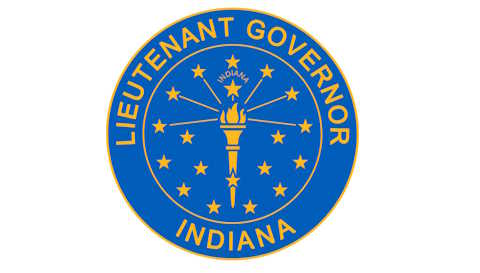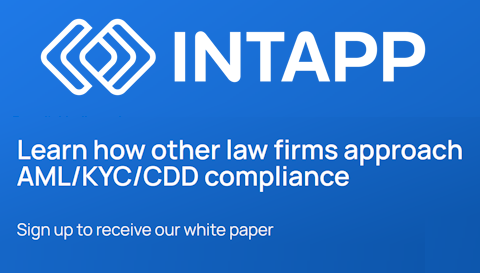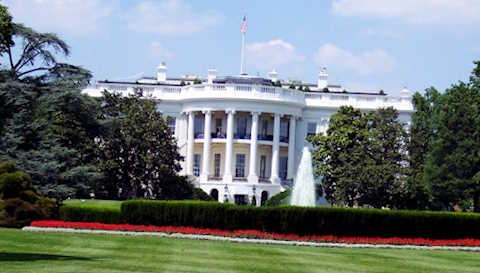Conflicts — Chilling on Thoughts of a Cooling “Hot Potato” Doctrine, Judge-ordered Conflict Considered, Soccer Matter See Disqualifying Red Card, ABS Innovation Playbook
Posted on
David Kluft, Assistant Bar Counsel at Massachusetts Office of Bar Counsel, consistently spots interesting stories: “Can a judge order me to stay in a case despite a clear conflict of interest?” —
- “A NE court appointed a public defender’s office to represent a client on a drug charge. The client sought a lighter sentence by cooperating and becoming a confidential informant, purchasing illegal drugs at the police’s behest from a drug dealer.”
- “The court later appointed the same public defender’s office to represent the drug dealer. The public defender tried to refuse the case, but the judge would not let them withdraw.”
- “The NE Ethics Advisory Committee opined that this was a non-waivable conflict of interest because one client will be testifying against the other, and it would normally require withdrawal from both matters. However, under Nebraska’s version of Rule 1.16(c) (which is the same as the ABA Model rule), the public defender was required to keep both cases despite the conflict if the judge ordered it.”
- “The Committee opined that the public defender must be especially mindful of its confidentiality obligations in this unfortunate scenario, including that it was not allowed to warn the drug dealer about any information learned about him as the result of its work on the informant’s case.”
“Attorneys cautioned not to read too much into cooling of ‘hot potato doctrine’” —
- “Though a recent American Bar Association ethics opinion arguably weakens the so-called ‘hot potato doctrine,’ attorneys should not take false comfort that withdrawal from an ongoing representation has become any easier, lawyers who handle professional discipline cases say.”
- “In issuing Formal Opinion 516 on April 2, the ABA’s Standing Committee on Ethics and Professional Responsibility sought to provide additional guidance on what Model Rule of Professional Conduct 1.16(b)(1), governing the voluntary termination of a client relationship, means when it says withdrawal is allowed when it ‘can be accomplished without material adverse effect on the interests of the client.’ “
- “Whether the opinion achieves that goal is open to debate. Indeed, two members of the standing committee, Brian Faughnan, a former president of the Association of Professional Responsibility Lawyers based in Memphis, and Wendy J. Muchman, a Northwestern University law professor, wrote a dissent, which acknowledges the majority’s helpful guidance to lawyers on many of the situations it addresses.”
- “‘However, the portion seeking to argue why the ethics rules do not prohibit a lawyer from firing one client in order to sue another client is something that we fear will prove more harmful than helpful to lawyers,’ they write.”
- “Missing from the majority opinion but incorporated into the hot potato doctrine is the principle that loyalty to the client is an essential part of the withdrawal equation, said Boston attorney Thomas F. Maffei. In his view, the ethics opinion is a nod toward a worrisome trend of viewing the law as more of an industry than a profession.”
- “‘What’s clear from this opinion is that loyalty alone does not protect the integrity of the attorney-client relationship,’ Maffei said.”
- “When a client hires a lawyer, he added, ‘the client makes the judgment and assumes that the lawyer is going to stick with the client through thick and thin, through the end, and only withdraw if I don’t pay him or he’s getting sick or some other reason, but not because [the lawyer] just wants to go with some other more lucrative client.'”
- “The ‘good news’ is that it is and will remain hard to terminate a matter — especially a litigation matter — without causing ‘significant adverse effect’ on the client, Maffei said. ‘Nothing in this ABA opinion should cause lawyers to think it is now easier to withdraw,’ he said.”
- “The ABA opinion offers several examples of circumstances in which withdrawal will likely have a ‘materially adverse effect.'”
- “‘In some transactional representations, for example, delay caused in the search for substitute counsel may result in scuttling a deal or reducing its value,’ the opinion notes. That example illustrates one question a lawyer considering withdrawal should be asking: Does timing matter to the client?”
- “‘Where timing is objectively important to the client, significant delay can itself be a material adverse effect even if the representation can otherwise be completed successfully,’ the opinion notes.”
- “Material adverse effects may also result from the original lawyer having unique abilities or knowledge, or the significant additional expense of getting successor counsel ‘up to speed,’ the opinion notes. It adds that a lawyer ‘may be able to remediate these adverse effects and withdraw in a manner that avoids the harm the Rule seeks to prevent.'”
- “It offers the examples of the withdrawing counsel helping the client find and then working with the new lawyer and/or returning or forgoing legal fees for work that will have to be duplicated.”
- “‘None of that’s realistic,’ Maffei commented.”
- “On the other side, the ABA highlights circumstances unlikely to have a ‘material adverse effect,’ such as ‘where the representation has barely gotten off the ground’ or ‘where co-counsel can successfully complete the remaining work.’ Those are obvious, attorneys say.”
“Nonetheless, the standing committee thought it was important to stress that Rule 1.16(b)(1) does not protect a client’s interest simply in maintaining an ongoing client-lawyer relationship, protect against the client’s disappointment in losing the lawyer’s services, or prohibit withdrawal based on the client’s perception that the lawyer is acting disloyally.” - “Rossi also cautioned that, as helpful as the guidance may be for lawyers in analyzing the potential adverse effects of a withdrawal on a client’s interest, the ABA opinion also provides a roadmap for clients to oppose a lawyer’s withdrawal.”
- “‘It is hard to envision many scenarios in which a lawyer’s withdrawal would not result in additional costs and delays for clients, and now there is authority indicating that this is problematic and may be a basis to prevent an attorney from withdrawing,’ he said.”
- “To the extent that Formal Opinion 516 has made news, it is through its attempt to weaken the ‘hot potato’ doctrine, attorneys said.”
- “‘A majority of the committee takes the view that dropping a current client to represent a more favored client is not in itself a violation of the ethical rules,’ Rossi said.”
“But he was quick to note that the opinion only addresses the issue in the rules context. ‘A court dealing with a disqualification motion or a breach of fiduciary duty claim against a lawyer may apply a different standard,’ Rossi said.” - “The ABA opinion allows that, ‘[i]n the context of litigation, some courts have held that without the client’s consent, a lawyer may not withdraw from a representation to litigate against the now-former client. Lawyers who end a representation for this reason have sometimes been disqualified from representing the new client.'”
- “The dissenters call that portion of the majority’s opinion ‘incomplete.'”
- “‘The opinion fails to address the breadth of precedent on the ‘hot potato’ doctrine, and we are concerned that by seeming to dismiss this judicial doctrine as involving a handful of outlier cases, the opinion may mislead lawyers about the law,’ Faughnan and Muchman write.”
- “The ABA opinion dodges the real reason the courts adopted the hot potato doctrine — the allure of a bigger payday that incentivizes lawyers to ditch one client in favor of another, according to Maffei.”
- “Rossi added the ABA opinion also reinforces the importance of closing files.”
- “‘One way to avoid the ‘hot potato’ problem altogether is to distinguish between current clients and former clients,’ he said. ‘Just as we have certain administrative steps we follow when we take on clients, we also need to be sure to take steps necessary to close files when our work on a matter is complete.'”
- “That could be as simple as sending a disengagement letter and providing a final bill, he said.”
“Judge DQs Atty Suing FIFA Over Antitrust Allegations” —
- “A Puerto Rican federal judge on Thursday disqualified an attorney suing FIFA and local affiliates over allegedly blocking rival soccer leagues, saying the lawyer cannot simultaneously be a plaintiff, counsel and factual witness.”
- “The order by U.S. District Judge Raúl M. Arias-Marxuach said that, while hybrid representation is sometimes allowed, it is not guaranteed and should happen sparingly.”
- “José R. Olmo-Rodríguez of Olmo & Rodriguez Matias Law Office PSC was representing several plaintiffs in the suit, including the now-shuttered Puerto Rico Soccer League NFP Corp., and is also listed as a plaintiff himself.”
- “‘While disqualification should not be granted lightly, the court finds that Mr. Olmo should not be an exception to the general rule against hybrid representation,’ the order said. ‘Mr. Olmo is a named plaintiff and is identified as one of plaintiffs’ factual witnesses in the joint case management memorandum.'”
- “Olmo and co-counsel Ibrahim Reyes-Gándara of Reyes Lawyers PA found themselves in hot water recently after appearing to use artificial intelligence to help write briefs — including one fighting FIFA’s disqualification bid — that included nonexistent cases. Judge Arias-Marxuach threatened sanctions against the men after verifying multiple incorrect citations, saying while AI is not forbidden, attorneys ‘have a duty of competence to their clients and a duty of candor to the tribunal.'”
- “Meanwhile, the judge stopped short on Thursday of disqualifying Reyes, as well. The defense had argued the court should disqualify the attorney because he had served as co-chair, chief operating officer and general counsel of PRSL, and may also be a witness in the lawsuit.”
- “‘Unlike Mr. Olmo, Mr. Reyes is not identified as a factual witness by plaintiffs. Although Mr. Reyes may have personal knowledge of key factual allegations, as alleged by defendants, that does not mean he is a ‘necessary witness’…,’ Judge Arias-Marxuach said.”
- “The order went on to say that the defendants have not articulated a conflict of interest between PRSL and Reyes, and they appear to be on common ground.”
- “Olmo and other plaintiffs had in turn filed a motion to disqualify the Adsuar Muñiz Goyco Seda & Pérez-Ochoa PSC law firm, which is counsel for defendant Federacion Puertorriquena de Futbol and its directors. The plaintiffs argued it was a conflict of interest to represent the organization and its director, but Judge Arias-Marxuach did not agree. He denied the motion on Thursday, ruling there was no conflict.”
“Pera Publishes ‘The Playbook’ on Expanding the Geographic Reach of an Arizona ABS” —
- “Adams & Reese Partner Lucian Pera, one of the nation’s leading legal ethics practitioners, has published “The Playbook: How to Extend the Reach of an Arizona ABS Law Firm to the Entire United States.” Pera provides a practical survey of tools and models now used by innovators to deliver legal services and extend the reach of ABSs – short for Alternative Business Structures.”
- “The primary roadblock for ABSs is the prevailing interpretation of ABA ethics rules. ABA Formal Ethics Op. 91-360 (1991) found that nonlawyer-owned law firms cannot establish branch offices in jurisdictions that prohibit nonlawyer ownership. And lawyers licensed in jurisdictions that prohibit nonlawyer ownership cannot practice with ABSs. Every jurisdiction that has addressed this issue has followed these principles. Arizona ABSs are essentially ‘landlocked.'”
- “Still, despite this restriction, Pera says at least four techniques allow ABSs to expand their work beyond Arizona, including a fifth technique to allow nonlawyer support of a law firm without implicating ABSs at all. Pera discusses approaches that include:
- The Co-Counsel and Referral-Fee Model;
- The Pro Hac Vice Admission Model;
- The Temporary Practice Model;
- The Staffing Company Model; and
- The Two-Company Law Firm Model.”
- “These techniques are explored in more detail in Pera’s “The Playbook” – a 36-page guide that discusses how to extend the reach and operations of an Arizona ABS to other U.S. jurisdictions, while acting within current U.S. law and ethics rules. Click here to download the full version.”









